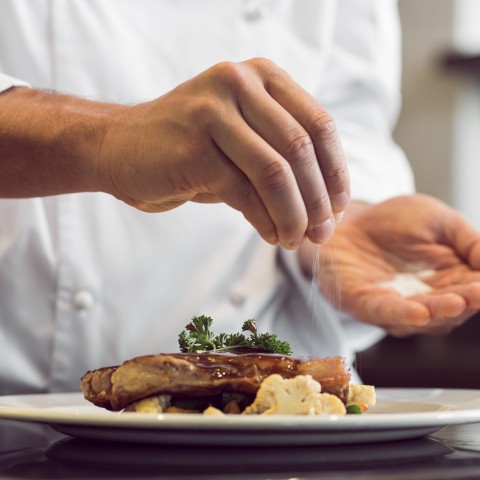Among useful Polish phrases, compliments are particularly handy in social situations. Giving a compliment can make you feel good, and also bring joy to the lives of others. What are the best Polish compliments, though? Keep reading and you’ll learn how to compliment people in Polish in any situation.
Table of Contents
- Complimenting Someone’s Appearance
- Praising Someone in Polish for Their Work
- Complimenting Someone on Their Skills
- Making Compliments Sound More Sincere
- What to Expect After You Give a Compliment
- Final Thoughts
1. Complimenting Someone’s Appearance
We all compliment someone’s appearance from time to time. And yet, sometimes people may feel offended by certain remarks.
The easiest way to avoid making someone feel uncomfortable is to consider the context before complimenting them. Shouting “You are beautiful!” in Polish (Jesteś piękna!) to a woman or “You’re handsome!” (Jesteś przystojny!) to a man on the street is an example of bad manners. In fact, catcalling is a form of street harassment.
Similarly, commenting on someone’s appearance is often inappropriate in professional contexts, such as a job interview or a shareholder meeting.
You should save such compliments for positive acquaintances, friends, and family.
1- Polish Compliments to a Girl or Woman
There’s a number of lovely Polish compliments to a girl or woman you can use. Here are some compliments in Polish for women of any age:
A- Hair
- Bardzo ładnie ci w tych włosach! (“This hairstyle looks great on you!”)
- Masz bardzo zadbane włosy. (“Your hair is in great shape!”)
- Bardzo fajna fryzura! (“What a cool haircut!”)
- Super cięcie! (“Great haircut!”)
B- Outfit
- Ale śliczna sukienka! (“What a lovely dress!”)
- Fajna stylówka! (“Cool style!”)
- Do twarzy ci w tym kolorze! (“This color suits you!”)
- Ekstra/super bluzka! (“I love your shirt!”)
- Podoba mi się twoja torebka. (“I like your handbag.”)
- Gdzie kupiłaś ten sweter? Jest przepiękny! (“Where did you buy this sweater? It’s gorgeous!”)
Learn more words for clothes in Polish to expand your complimenting abilities!
C- Smile
- Masz bardzo ładny uśmiech. (“You have a very pretty smile.”)
- Pięknie się uśmiechasz. (“You smile beautifully.”)
D- General compliments on appearance
- Jesteś najpiękniejszą kobietą, jaką kiedykolwiek widziałem. (“You’re the most beautiful woman I’ve ever seen.”)
This phrase can be said to a woman by a man in a romantic context. If a woman wanted to say it, the form of the verb widzieć (“to see”) would change to widziałam.
- Świetnie/Super/Ekstra wyglądasz! (“You look great!”)
We could compliment a man in the same way.
- Macierzyństwo ci służy! (“Motherhood suits you!”)
The literal meaning is closer to: “Motherhood serves you well!”) It’s a Polish compliment specifically for women who’ve become mothers.
- Z roku na rok wyglądasz coraz lepiej! (“You look better every year!”)
This phrase is stereotypically considered one of the top Polish compliments for a girl or woman.
- Zżera mnie zazdrość jak na ciebie patrzę. (“I’m green with envy when I look at you.”)
This is a compliment in Polish told by a woman to a woman.
2- Polish Compliments for Men on Appearance
Compliments about a man’s smile and hair would be the same as for women, even though they’re certainly used less often. You can also compliment a man on the following:
A- Outfit
- Podoba mi się Twój garnitur. (“I like your suit.”)
- Fajne jeansy! (“Cool jeans.”)
- Szykowna marynarka! (“Stylish jacket!”)
- Nieźle sie odstawiłeś! (“You look very fancy.”)
The last expression is humorous and can be used in a mean way, so make sure you’re on good terms with someone and that they get your sense of humor before you use it.
B- General compliments on looks
- Jesteś najwspanialszym mężczyzną, jakiego znam. (“You’re the best man I know.”)
This phrase is romantic in nature. Are you keen to learn more about romance and love in Polish?
- Kim jest ten przystojniak? (“Who’s that handsome man?”)
Another humorous way to comment on the fact that someone looks good.
- Bardzo wyprzystojniałeś. (“You’ve gotten much more handsome.”)
This one is a compliment often used for someone who we’ve known as a child or teenager.
- Nieźle się trzymasz. (“You still look good.”)
This expression is used for someone who’s aging well. Are you still unsure of how to compliment a guy? Wikihow to the rescue!
2. Praising Someone in Polish for Their Work
Everyone likes to feel appreciated, which is why it’s so important to know the best Polish compliments to give on a job well done. If you don’t feel confident about your work-related Polish vocabulary, go to our jobs/work vocabulary builder.
1- General Work-Related Compliments
There’s a number of Polish compliments applicable in many work-related situations. They include:
- Dobra robota! (“Good job!”)
- Widać, że się starałeś! (“I can tell you’ve put a lot of work into it!”) [to a man]
- Widać, że się starałaś! (“I can tell you’ve put a lot of work into it!”) [to a woman]
- Zasłużyłeś na pochwałę! (“You’ve earned your praise!”) [to a man]
- Zasłużyłaś na pochwałę! (“You’ve earned your praise!”) [to a woman]
By the same token, you could humorously suggest that someone’s work is so good that he or she deserves a raise:
- Zasłużyłeś na podwyżkę! (“You should get a raise!”) [to a man]
- Zasłużyłaś na podwyżkę! (“You should get a raise!”) [to a woman]
- Twoje wyniki przerosły moje oczekiwania. (“Your results have surpassed my expectations.”)
2- Specific Compliments on Someone’s Work
There are also many compliments you can use in specific situations, depending on the gender of the noun:
A- Feminine
- Bardzo podobała mi się twoja prezentacja. (“I’ve really enjoyed your presentation.”)
- Ciekawa przemowa. (“An interesting talk.”)
- Znakomita sugestia. (“An excellent suggestion.”)
B- Masculine
- Bardzo podoba mi się twój pomysł. (“I really like your idea.”)
- Ciekawy plan. (“An interesting plan.”)
- Znakomity raport. (“An excellent report.”)
C- Neutral
- Bardzo podobało mi się twoje wystąpienie. (“I’ve really enjoyed your speech.”)
- Ciekawe podejście. (“An interesting approach.”)
- Znakomite podsumowanie. (“An excellent summary.”)
3. Complimenting Someone on Their Skills
Sometimes, in your private life, you may want to compliment a friend or an acquaintance on their skills. After all, complimenting someone in Poland may earn you brownie points.
One thing to remember is that Polish compliments for a girl or woman are often different than those for a man. This is due to the changes in the form of adjectives and gender-dependent nouns.
Learn high-frequency adjectives in Polish, and then get ready to use them in Polish compliments!
1- Saying Nice Things About Someone’s Cooking
If someone makes an effort to cook for you, you should at least know how to say how much you’ve enjoyed the meal. By the way, have you ever tried Polish cuisine?
- Jesteś świetną kucharką. (“You’re a great cook.”) [to a woman]
- Jesteś świetnym kucharzem. (“You’re a great cook.”) [to a man]
- Naprawdę pycha, dziękuję! (“It’s really delicious, thank you.”)
- Świetnie gotujesz. (“You’re a great cook.”) [Literally: “You cook great.]
- Przepyszna sałatka [or other feminine noun]. (“Great salad!”)
- Przepyszny makaron [or other masculine noun]. (“Great pasta!”)
- Niebo w gębie. Dasz mi przepis? (“Super-tasty! Can you give me the recipe?”) [Niebo w gębie is an idiomatic slang expression that literally means “Heaven in the mouth.”]
2- Praising Someone’s Artistic Skills
When a friend unleashes their inner artist, there’s nothing nicer for them than hearing some genuine appreciation for their skills. Here’s a number of handy phrases to use for that purpose:
A- Photography
- Masz naprawdę dobre oko. (“You have a really good eye for photography.”)
- Piękne ujęcie! (“What a beautiful shot!”)
- Gdzie się nauczyłeś robić takie świetne zdjęcia? (“Where did you learn to take such great pictures?”) [to a man]
- Gdzie się nauczyłaś robić takie świetne zdjęcia? (“Where did you learn to take such great pictures?”) [to a woman]
- Super zdjęcie! (“Great picture!”)
Curious for more photography words? Listen to this conversation about a Polish photograph!
B- Painting
- Świetnie malujesz! (“You paint well!”)
- To ty to namalowaś? (“You’re the one who painted it?”) [to a woman]
- To ty to namaloweś? (“You’re the one who painted it?”) [to a man]
These expressions, through doubt, introduce a suggestion that something is almost too good to be done by a non-professional. Such compliments are not uncommon in Polish culture.
- Ten pies [or other masculine noun] wygląda jak żywy. (“This dog looks as if he was real.”)
- Ta kobieta [or other feminine noun] wygląda jak żywa. (“This woman looks as if she was real.”)
- To dziecko [or other neuter noun] wygląda jak żywe. (“This child looks as if it was real.”)
Żywy literally means “alive,” but in this context, it translates as “real.”
- Przepiękny obraz! (“What a stunning painting!”)
C- Playing an instrument
- Pięknie grasz! (“You play beautifully!”)
- Jesteś bardzo uzdolnioną pianistką/saksofonistką/gitarzystką. (“You’re a very talented pianist/saxophone player/guitar player.”) [to a woman]
- Jesteś bardzo uzdolnionym pianistą/saksofonistą/gitarzystą. (“You’re a very talented pianist/saxophone player/guitar player.”) [to a man]
- Grasz jak anioł! (“You play like an angel!”)
To learn how to talk about hobbies in Polish, don’t forget to go to our lesson “What do you do in your free time in Poland?”
3- Compliments About Language Skills
As a language-learner, you should know that learning a foreign language isn’t easy and that it’s extremely nice to be complimented on your skills. Here’s how you can say a few nice words about someone’s language fluency in Polish:
- Świetnie mówisz po angielsku. (“You speak English very well.”)
- Mówisz po włosku jak native speaker. (“You speak Italian like a native speaker.”)
- Mówisz po niemiecku, jakbyś urodził się w Niemczech. (“You speak German as if you were born in Germany.”) [to a man]
- Mówisz po niemiecku, jakbyś urodziła się w Niemczech. (“You speak German as if you were born in Germany.”) [to a woman]
- Masz bardzo bogate słownictwo. (“You have a very rich vocabulary.”)
- Jestem pod wrażeniem twoich zdolności językowych. (“I’m impressed by your language skills.”)
Do you know how to brag about your own language skills in Polish? If not, check out our lesson “Who wants to be a polyglot?”
4. Making Compliments Sound More Sincere
Knowing the best Polish compliments is one thing, and knowing when to give them so that they sound natural is another. Below, you can find tips on making your compliments sound more sincere.
1. Speak only the truth.
The best way to make your compliments more sincere is being honest. Don’t tell someone you like their new hairstyle just because you think that’s what’s expected.
2. If you have nothing nice to say, say nothing.
Only give the compliments you mean, and if you have nothing nice to say, remain quiet. This means you should refrain from negativity. Your sincere compliment later on will mean nothing if you manage to offend someone beforehand.
3. Comment on specific things.
Vague compliments such as Wyglądasz świetnie! (“You look great!”) can be nice, but people prefer specific compliments, as they come off as more genuine. That’s why Uwielbiam takie kolorowe kolczyki! (“I love such colorful earrings!”) sounds more like it’s coming from the heart than simply saying Fajne kolczyki! (“Cool earrings!”)
4. Smile and look people in the eye.
A sincere smile and looking people in the eye are sure ways to make a compliment feel genuine.
5. Respect people’s personal space.
Polish people are much less touchy than, for instance, Americans or people in some other nations. You don’t want to come off as pushy or flirty, if that’s not your intention. Observe your environment and ask around to learn how close you should get to a person and in what situations touch is appropriate.
If you feel like you need more help, read the guide on Wikihow “How to Give a Compliment.” Psychology Today is also there for you to tell you about 9 types of compliments that do and don’t work.
5. What to Expect After You Give a Compliment
Polish people enjoy compliments just like people in any other nation. However, compliments in Polish culture are often diminished by people who receive them. For instance, if you praise someone’s piano-playing skills with:
- Pięknie grasz na pianinie. (“You play the piano beautifully.”)
You can expect a reply of Dziękuję (“Thank you”), followed by something along the lines of: To tylko zasługa mojego nauczyciela. (“It’s only because of my teacher.”)
Other ways to say “thanks” for the compliment in Polish include:
- Dzięki, ale to nic wielkiego! (“Thanks, but it’s nothing special!”)
- Naprawdę tak sądzisz? Dzięki! (“Do you really think so? Thanks!”)
- Dzięki wielkie! (“Thanks a lot!”)
Trip Savvy has some great information on the intricacies of the Polish culture, if you would like to learn even more!
6. Final Thoughts
Today, you’ve learned many useful Polish phrases. Compliments, after all, are an indispensable communication tool. Polish compliment translations don’t always have exact matches in English, but there’s a wide variety of compliments in this language.
Whenever you need Polish compliments for a girl, woman, or man, you can consult our article again to find them. You can also read about the top 10 compliments you always want to hear in Polish. Which compliment would you like to hear the most? Let us know in the comments section before you go.
PolishPod101.com can offer you much more than just Polish compliments, though. If you want to learn how to speak Polish from scratch, PolishPod101 is a perfect tool for that. Get your free lifetime account now and access thousands of audio and video lessons, lesson materials, and other learning tools on your mobile device of choice.
Happy learning!




















